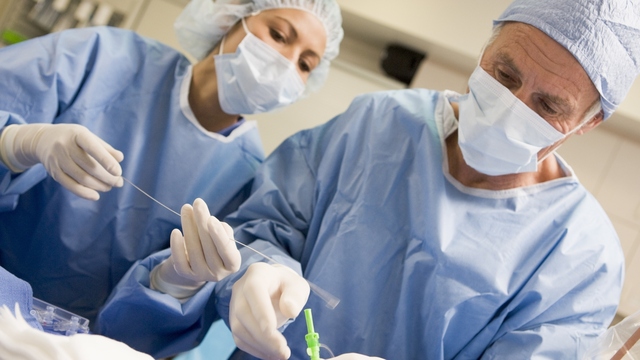 MonkeyBusiness Images/PhotoSpin
MonkeyBusiness Images/PhotoSpin
Medical breakthroughs and state-of-the-art techniques give doctors new tools as they work to improve treatments for heart disease. New innovations for treating cardiovascular disease are on the scene.
These innovations include:
Living Organ Transplant
Clinical trials are under way for the Transmedics Organ Care System which can keep an organ, such as a heart, warm and functioning outside of a human body.
The system helps preserve the organ while in transit from donor to recipient for transplant surgery. It gives the surgeon the opportunity to assess the function of the organ outside the body.
GPS Heart Surgery
Doctors use a GPS-like navigation system called Stereotaxis to magnetically guide catheters through the heart, to reduce the risk of puncturing blood vessels.
3D Printing
A surgeon at Children’s Hospital Los Angeles used three-dimensional printing technology to create a 3D scale model of a child’s heart. He then used the model to plan the complex surgery needed to repair the child’s life-threatening heart defect.
Mechanical Heart Assistants
Ventricular assist devices (VADs) are mechanical pumps that help improve the function of the right and/or left ventricles or pumping chambers of the heart.
A VAD can be a bridge to transplant, preventing heart failure until a heart is available. and can permanently help support a failing heart. In some cases it can give a damaged heart time to rest and heal. Some devices are implantable and are the size of a D cell standard cylindrical battery.
Help for Heart Rhythms
Testing is underway for new implants to treat heart rhythm issues. One such defibrillator can be implanted entirely under the skin to prevent heart attacks, keep heart beats in sync, and allow for remote monitoring.
Reinforced Sternum
Doctors at the University of Chicago are refining a technique called sternal plating that helps reinforce the sternum or breast bone. This technique can decrease pain and the risk of infections, and speed healing after heart surgery.
CPR Update
Researchers at the UT Southwestern Medical Center have determined that successful CPR to help someone whose heart has stopped depends on the depth and speed of chest compressions.
Their research showed that chest compressions should not be deeper than 5.5 centimeters, or about 2 inches. Deeper compressions can damage other internal organs and decrease odds of survival.
Chest compressions should be performed at a rate of 100-120 per minute for the best chances of survival. Researchers recommend using the beat to the children’s song “Row, Row, Row Your Boat” to help keep a steady rhythm at the right speed.
If you have questions about your heart health or available treatment options, talk to your health care professional.
Sources:
The University of Chicago Medicine. Promising Research in Heart and Vascular Disease. Web. February 11, 2015.
http://www.uchospitals.edu/specialties/heart/research
PennMedicine. Overview of the Ventricular-Assist Device Program. Web. February 11, 2015.
http://www.pennmedicine.org/heart/patient/clinical-services/mechanical-a...
Medical News Today. Depth and rate of chest compressions during CPR impact survival in cardiac arrest. Web. February 11, 2015.
http://www.medicalnewstoday.com/releases/289122.php
Science Daily. 3D printing makes heart surgery safer for children. Web. February 11, 2015.
http://www.sciencedaily.com/releases/2015/01/150129093946.htm
Reviewed February 12, 2015
by Michele Blacksberg RN
Edited by Jody Smith





Add a CommentComments
There are no comments yet. Be the first one and get the conversation started!